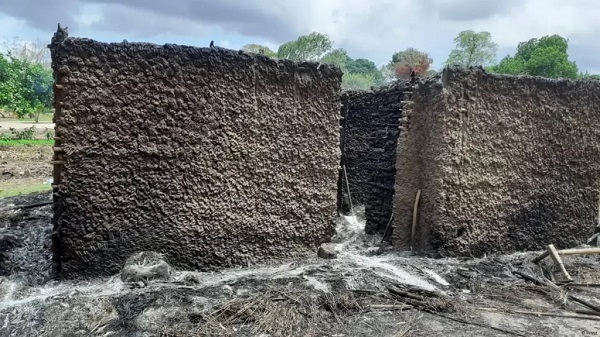MAPUTO, Oct 7 (The African Portal) – Over 6,000 people were killed by Islamist terrorists in the northern Mozambican province of Cabo Delgado since the attacks started in 2017, according to a report carried out by the independent conflict registration project ACLED (Armed Conflict Location and Event Data Project).
According to ACLED researcher Peter Bofin, cited by the Portuguese News Agency (LUSA), 6,257 were killed during the instability and “the situation is quite unstable. In September, the Islamic State of Mozambique (ISM) was active in eleven districts of Cabo Delgado and also crossed into Nampula at the end of the month.”
Cabo Delgado has been the target of terrorist attacks for eight years, with the first attack recorded on 5 October 2017, in the district of Mocímboa da Praia.
According to Bofin, since October 2017, at least “2,209 violent events have been recorded in Cabo Delgado, with 6,257 reported deaths, including at least 2,631 civilians.”
“Unlike in 2021, when it attacked Palma town, the group now operates in small, highly mobile cells. This allows them to operate across much of the province, a pattern that strains the resources of the security forces, even though there are likely fewer than 400 ISM fighters,” he said.
“ISM activity increased significantly in August and September compared to previous months. There may be a connection between this and the imminent resumption of the Liquefied Natural Gas (LNG) project in Palma”, he added.
That district was the first stage of attacks in 2017. Bofin explained that, between 2017 and March 2021, the insurgency strengthened, taking Mocímboa da Praia and attacking Palma. Mocímboa da Praia town even served as rebel headquarters for a little over a year, until it was retaken in August 2021 by joint action by Mozambican and Rwandan government forces.
However, he said, the Mozambican Defense and Security Forces (FDS) began to gain ground against a terrorist group that is now “much smaller, around 2,000 fighters at the time, now less than 400, and is no longer in a position to take towns as before.”
“However, the group is extremely resilient”, Bofin continued. “It has remained united and adapted tactically to operate in small groups. In this way, it has managed to create considerable disruption.”
Bofin believes that the group has access to adequate funds and weapons to sustain itself. “Unless it directly threatens the LNG plant, it is unlikely that the better-equipped and previously effective Rwandan forces will become more active against it”, he said.
United Nations agencies reported that nearly 22,000 people fled from three districts of Cabo Delgado, including Mocímboa da Praia, from 19 to 26 September, due to the resurgence of attacks.
The researcher praised the performance of the Mozambican forces in combating the insurgency, especially since 2021, after which he considered the “stabilization of its structure,” calling for government efforts to build the army’s capacity to better deal with the insurgency. He said that President Daniel Chapo identified significant deficiencies in the Armed Forces, including corruption, the disclosure of sensitive data to the enemy, and favoritism in appointments.
“There is also an alarming tendency by the Mozambique Armed Forces (FADM) to target civilians, particularly in coastal areas, where they believe the population may support the insurgents,” Bofin said.
Credit: (AIM)






